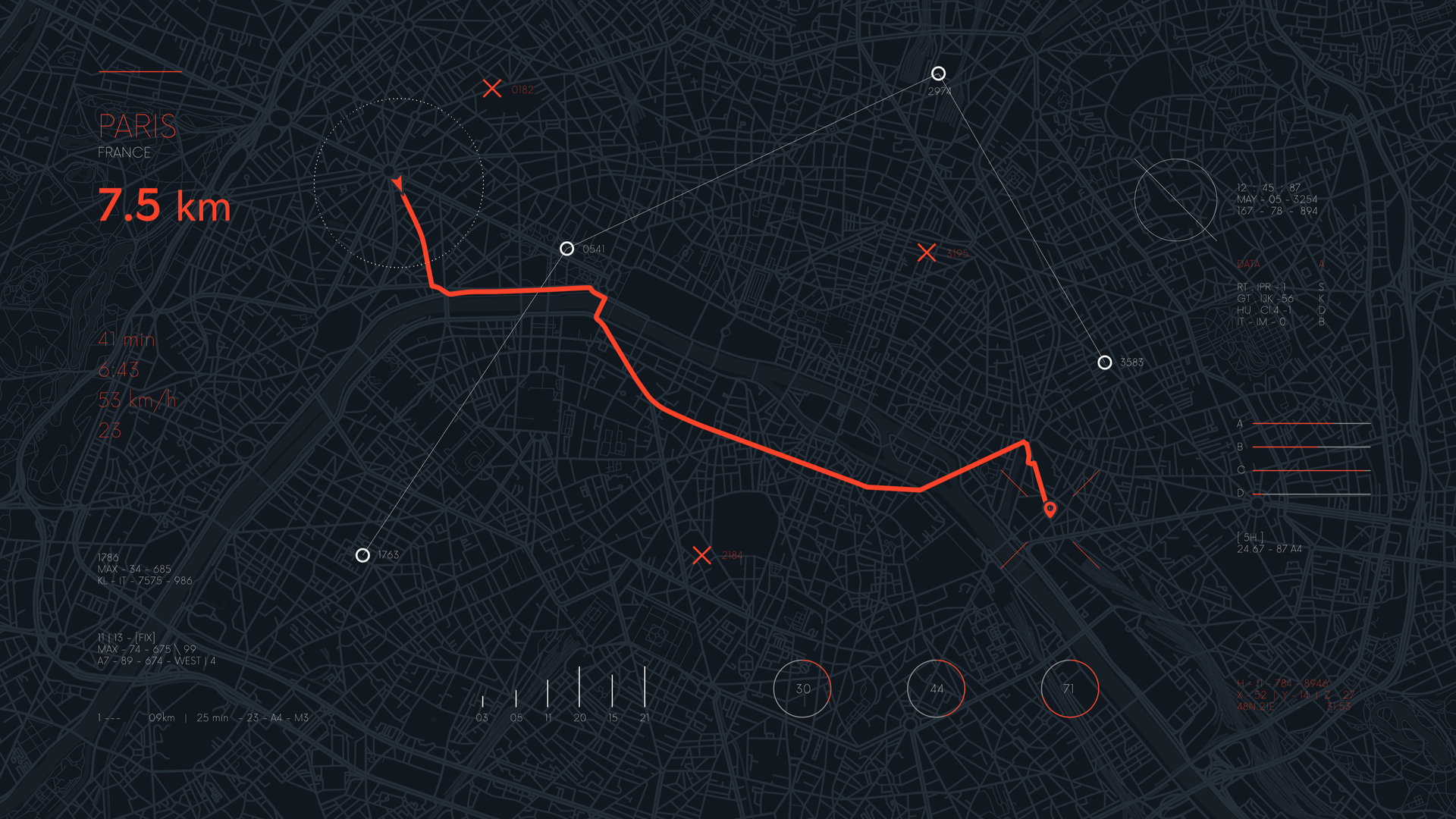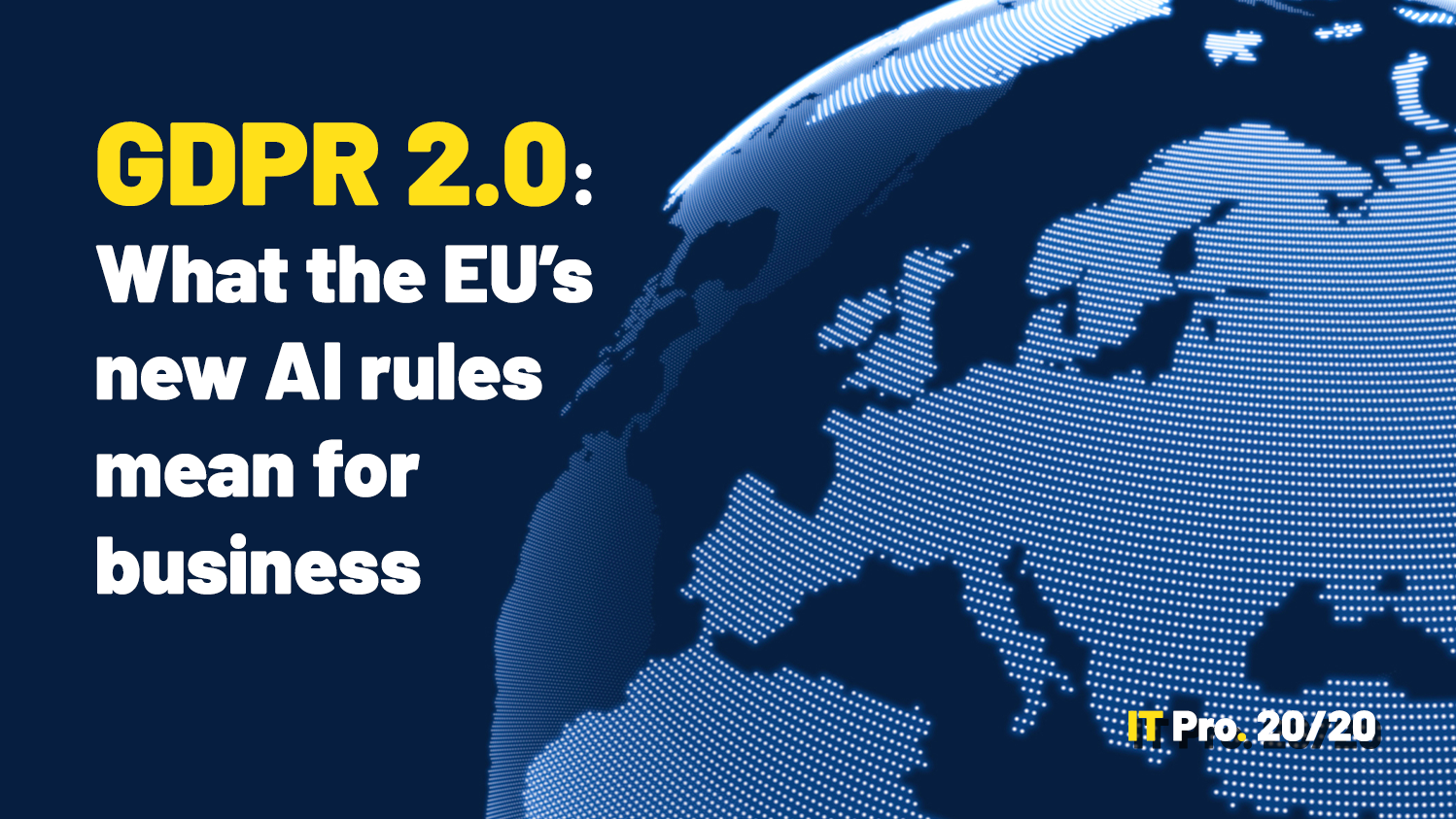The Locus Charter – a sign of the times
Location data is going to be big in the coming years, and a new location data charter aims to help ensure it’s used fairly and personal data is protected


Sign up today and you will receive a free copy of our Future Focus 2025 report - the leading guidance on AI, cybersecurity and other IT challenges as per 700+ senior executives
You are now subscribed
Your newsletter sign-up was successful
Location-based data is arguably the next big thing for those interested in commercially mining big data. But, what if a company that already knows a lot about what you do on the web knew what you did in the real world, too? What if said company also knew what you did when out and about, such as the shops or entertainment venues you visited, what you bought, how long you stayed at any location, or even where in a store you wandered? This isn’t a scare story – all of this can be captured right now and is only the tip of the location data iceberg.
The Locus Charter
We might be in the early days of the mass collection of location data, combining it with other data, analysing and using it, but it’s already incredibly powerful and there are many examples of how it can be used for public good. Charles Kennelly, UK CTO of Esri, a producer of geographic information system (GIS) software and a partner of Ordnance Survey, cites examples such as: “Providing better healthcare, tracking the spread of a virus, ensuring the safety of autonomous vehicles, better planning for new housing, protecting endangered species, and assessing the impact of pollution on the population.”
Mass collection and mining of location data has become so popular, in fact, that a coalition of governments, organisations and practitioners has come together to form the Locus Charter, the aim of which is to ensure the ethical and responsible use of location data throughout the world. The Charter has ten principles based around ensuring location data is collected in ways that protect individual privacy, minimise what’s collected to just what’s needed, and managed accountably.
Location data is powerful
While the amount of location data continues to grow and grow, the power embedded within it has been recognised for a long time. Caroline Carruthers, CEO of data consultancy Carruthers and Jackson puts it very starkly, saying: “Broadcasting your location puts you at risk.”
“I was one of the first people in the world to work with location data services with Vodafone Live back in the early 2000s, and even then, we were discussing and trying to solve the potential problems that we’re talking about today around privacy concerns,” she says.
RELATED RESOURCE

IT Pro 20/20: What the EU's new AI rules mean for business
The 17th issue of IT Pro 20/20 considers the effect of new regulations on the IT industry
Location data can be hugely useful when anonymised and analysed, but there are concerns about ensuring ethical use and personal privacy. Kennelly says: “Knowing where something or someone is enables organisations to relate multiple sets of data, simply by using their relative locations as a glue to bind them together. If you know someone’s location you can tell where they live, where they work, their interests, political beliefs and so on. Complex models scanning across thousands of variables in real-time can be created and used to build intelligence and guide decisions.”
The need for a location data charter
Henrik Nordmark, director of science, data and innovation at data science company Profusion points out that it might be easy to dismiss a charter like the Locus Charter because in some ways it repeats principles of data protection and privacy already found in legislation, such as GDPR. But in fact, Nordmark says, one reason it’s needed is that “it is so incredibly easy to de-anonymise datasets if you combine it with location data, which represents a unique challenge if we care about preserving data privacy”.
Sign up today and you will receive a free copy of our Future Focus 2025 report - the leading guidance on AI, cybersecurity and other IT challenges as per 700+ senior executives
To be at its most effective, a charter needs to have global reach, as Carruthers notes. “Take GDPR as an example,” she says, “Everyone in Europe follows the rules as mandated by GDPR, but they mean absolutely nothing to someone living in China. Data doesn’t have any boundaries.”
This establishes the need for a globally accepted location data charter to which national governments and organisations large and small sign up. But that’s not an easy prospect, and creating awareness among creators and users of location data as well as the public is at least as important. Nordmark tells IT Pro: “What is actually important here is raising public awareness and business awareness that location data is quite powerful and can lead to many interesting applications, but it can also easily be abused and compromise data privacy. This would hopefully in time lead to more widely accepted data protection standards internationally.”
Carruthers takes a similar view, telling IT Pro, “Data literacy has a big part to play. The more people within leadership positions understand data and the need for good data governance, the more charters like this will be recognised and implemented.”
In the end, then, the Locus Charter is one way that harmful uses of location data can be avoided. But to work it will need global reach, support in legislation which is also globally binding, and increased public and corporate awareness of the dangers. There is a way to go to meet those three goals.

Sandra Vogel is a freelance journalist with decades of experience in long-form and explainer content, research papers, case studies, white papers, blogs, books, and hardware reviews. She has contributed to ZDNet, national newspapers and many of the best known technology web sites.
At ITPro, Sandra has contributed articles on artificial intelligence (AI), measures that can be taken to cope with inflation, the telecoms industry, risk management, and C-suite strategies. In the past, Sandra also contributed handset reviews for ITPro and has written for the brand for more than 13 years in total.
-
 Anthropic promises ‘Opus-level’ reasoning with new Claude Sonnet 4.6 model
Anthropic promises ‘Opus-level’ reasoning with new Claude Sonnet 4.6 modelNews The latest addition to the Claude family is explicitly intended to power AI agents, with pricing and capabilities designed to attract enterprise attention
-
 Researchers call on password managers to beef up defenses
Researchers call on password managers to beef up defensesNews Analysts at ETH Zurich called for cryptographic standard improvements after a host of password managers were found lacking